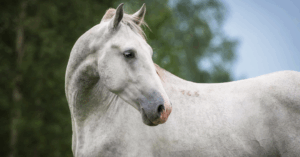
Gastro Pellet: Stomach Well-being Starts in the Mind
Anyone who spends every day around horses knows it well:…
Feed and products in 25kg bags excluded
Bank transfer | Paypal | Credit cards
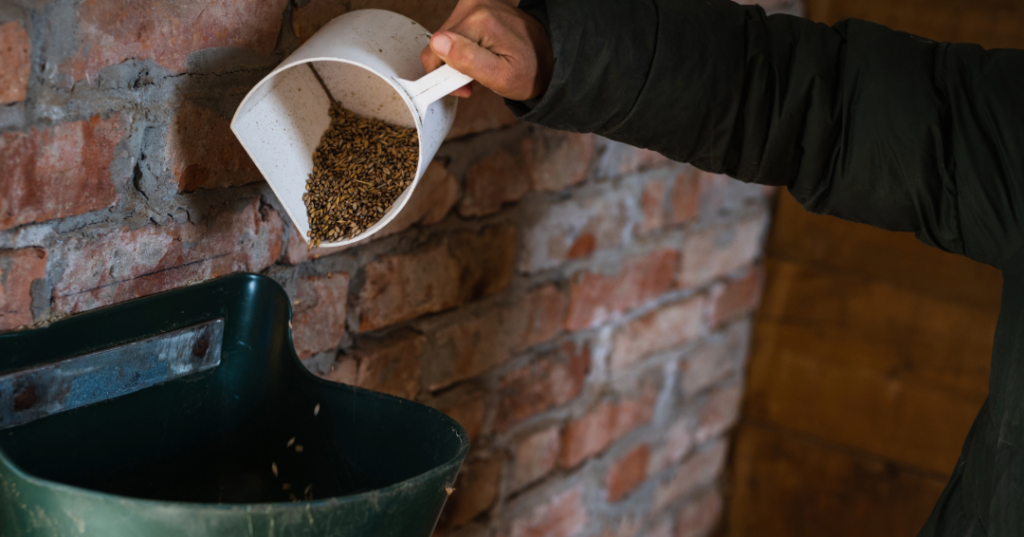
Determining what and how much your horse should eat each day is essential for ensuring health, wellbeing, and athletic performance. An imbalanced diet can lead to health issues, metabolic disturbances, suboptimal body condition, or poor performance. In this article, we will review the key factors to consider in order to define your horse’s nutritional requirements as accurately as possible.
Why It’s Important to Assess a Horse’s Nutritional Needs
Understanding a horse’s true nutritional requirements is fundamental to designing a diet capable of:
Key Factors to Evaluate
A horse’s nutritional needs derive from the analysis of its individual characteristics—what is often termed the anamnesis.
Key factors include:
Which can be estimated using the formula:
We have a video on this topic—click here to review it!
Which helps determine if the horse is underweight, ideal weight, or overweight. We also have a video for assessing BCS here.
Because the presence of conditions such as gastric ulcers, laminitis, insulin resistance, etc., require specific dietary adjustments.
As well as frequency and duration of training sessions, to estimate actual energy expenditure.
Since more nervous or excitable horses generally have higher maintenance requirements.
Practical Example
Consider a 500 kg horse, with a BCS of 4 (good body condition but slightly lean), competing in 130 cm show jumping, training 6 times per week for 1 hour per session. Its estimated nutritional requirements are:
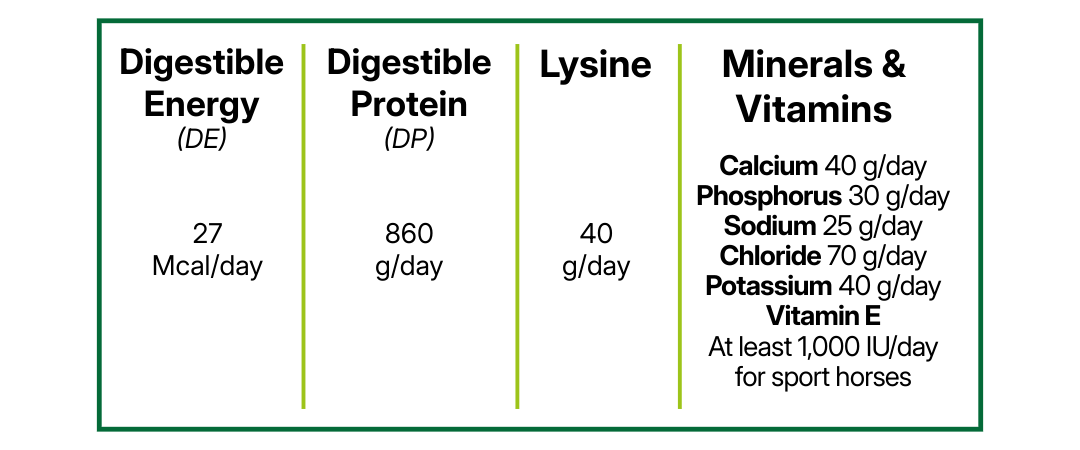
Based on these requirements, a sample feeding program might be:
Final Recommendations
Defining a horse’s nutritional requirements is a highly personalized process. Every horse is unique: what works for one may not be suitable for another.
Interested in nutritional advice?
At Unika, we develop personalized nutritional solutions every day for athletic horses of all disciplines. Contact us for free advice and to create the perfect plan for your horse

Anyone who spends every day around horses knows it well:…
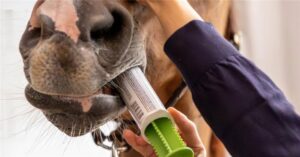
Intestinal parasites are a common and often underestimated problem in…
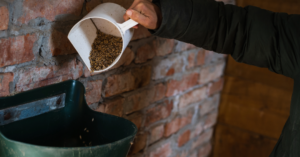
As September approaches, the quality and nutritional composition of pastures…
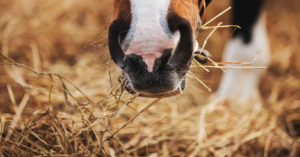
As September approaches, the quality and nutritional composition of pastures…
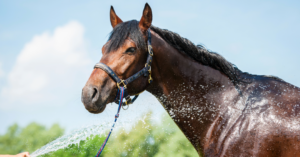
With the arrival of warmer weather, the competition calendar gets…

The importance Assessing your horse’s physical condition and determining whether…